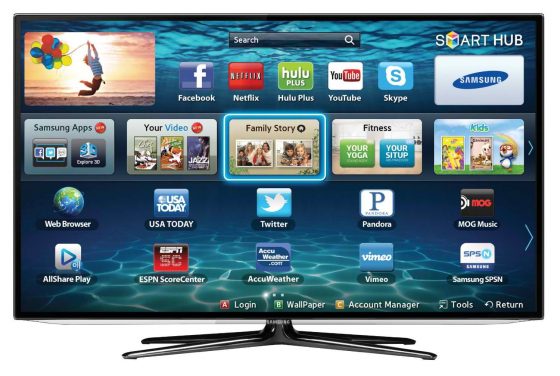It is all getting quite tiresome.It is a cyber war you are in and you don’t know it.
There is Facebook sharing your data with foreign entities and governments. Then the NSA announced it was deleting 685 million personal records.
Then it was Siri and Alexa. Then we are told that Google is reading your Gmail. And Google defends the practice.
Smart TVs Are Spying On You
If you watch television on an internet-connected TV, it may be watching you back.
Data-slurpers: The New York Times took a close look at the rise of services that track viewers’ watching habits—in particular Samba TV, which has claimed to gather second-by-second information from software on 13.5 million smart TVs in the US.
Been here before: Last year, the Federal Trade Commission fined Vizio for $2.2 million over a similar issue. But that was because Vizio sold its data to third parties without users’ consent. Samba pays TV manufacturers like Sony and Philips to carry its software, but doesn’t sell its data. Instead, Samba uses it to sell targeted ads.
Why it matters: You may rip your TV’s plug out of the wall in horror. Or you may not care (Samba TV has said that 90 percent of users agree to turn the service on). Either way, this kind of thing could be going on in your living room—and the companies behind it aren’t exactly going out of their way to let you know about it.
*** The New York Times was not the most recent reporting of this. In fact, several media outlets sounded the alarm back in 2017.
The Federal Trade Commission said Monday that Vizio used 11 million televisions to spy on its customers. The television maker agreed to pay $2.2 million to settle a case with the FTC and the New Jersey attorney general’s office after the agencies accused it of secretly collecting — and selling — data about its customers’ locations, demographics and viewing habits.
With the advent of “smart” appliances, customers and consumer advocates have raised concerns about whether the devices could be sending sensitive information back to their manufacturers. The FTC says the Vizio case shows how a television or other appliance might be telling companies more than their owners are willing to share.
“Before a company pulls up a chair next to you and starts taking careful notes on everything you watch (and then shares it with its partners), it should ask if that’s O.K. with you,” Kevin Moriarty, an attorney with the FTC’s Division of Privacy and Identity Protection, wrote in a blog post. “Vizio wasn’t doing that, and the FTC stepped in.”
As part of the settlement, Vizio neither confirmed nor denied wrongdoing.
“Today, the FTC has made clear that all smart-TV makers should get people’s consent before collecting and sharing television viewing information, and Vizio now is leading the way,” Vizio’s general counsel, Jerry Huang, said of the settlement.
Although some consumers might not recognize the name Vizio, most have probably watched something on a Vizio television. The Irvine, Calif.-based firm, which Chinese firm LeEco recently announced it would buy, is the most popular TV maker in the United States. With 20 percent of the U.S. market, it made about 1 in 5 TVs sold here in 2016. LeEco has broad ambitions in the consumer space, with businesses that also produce a Netflix-style media service, smartphones and even cars.
According to the lawsuit, Vizio was literally watching its watchers — capturing “second-by-second information” about what people viewed on its smart TVs. That included data from cable, broadband, set-top boxes, over-the-air broadcasts, DVDs and streaming devices. Vizio also is accused of linking demographic information to the data and selling the data — including users’ sex, age and income — to companies that do targeted advertising.
[Did you just open a brand new home hub? Read this first.]
Vizio said in its statement that it never paired viewing information with data that identified individual users but used viewing data only in “the ‘aggregate’ to create summary reports measuring viewing audiences or behaviors.”
The U.S. District Court for the District of New Jersey ordered Vizio to pay $1.5 million to the FTC and $1 million to the New Jersey attorney general’s office; Vizio won’t have to pay $300,000 of that unless it violates the order in the future.
The part of the settlement paid to the FTC reflects the amount that Vizio probably made from collecting and selling the customer information. Vizio will delete all the data it collected through the feature before March 2016. It must also prominently display its data collection and privacy policies to consumers and create a program to make sure its partners follow those policies.








Speak Your Mind
You must be logged in to post a comment.